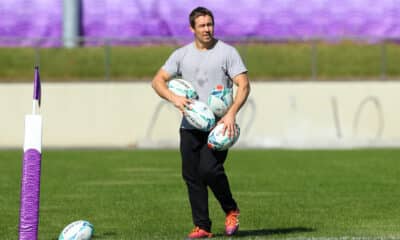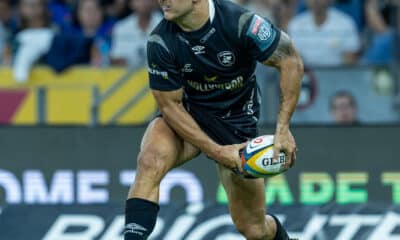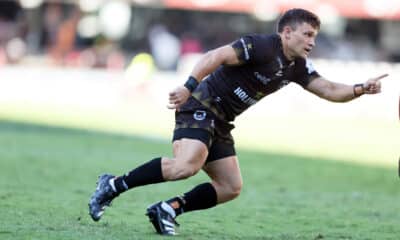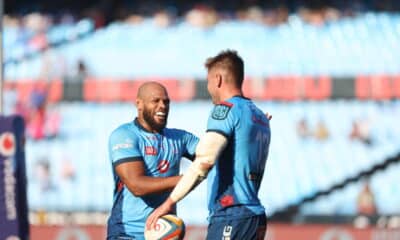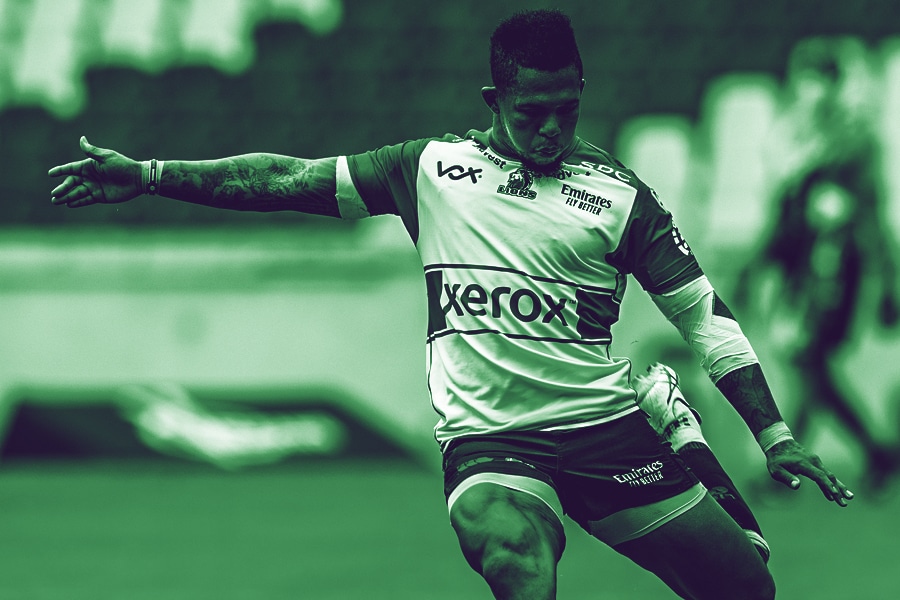
South African rugby’s move North means the Lions will finally have to confront their fundamental flaw, writes Quintin van Jaarsveld.
For better or worse, the Lions have running rugby in their DNA. They’re a joy to watch in full flight. Thrillingly fluid and smooth as butter. The dynasty architected by Johan Ackermann, which saw a slumbering franchise roar anew midway through the 2010s, was built on a burgeoning pack that allowed the backs to flourish and steal the shine.
The Ackermann era kicked into top gear when the Lions romped to their 11th Currie Cup title in 2015, defeating Western Province 32-24 in the final at Ellis Park to become the first side since the 1990s to complete an undefeated march to the crown.
From there, they reached three consecutive Super Rugby finals from 2016 to 2018 while playing an exquisite brand of rugby. The lasting memories from this prolific period are of free-flowing hunts and trophy tries rather than the big beasts upfront who paved the way for such fast-paced feasts. Such is the nature of the game, though.
Since those fond times, the Lions have tried to recapture that magic. There have been hints of those mercurial heroics, sprinkles of diamond dust, but mostly, the Lions have been their own worst enemy. Naivety is nothing new when it comes to the Lions and their love of spreading the ball wide. It’s in their genetic make-up as mentioned, so this isn’t an indictment of the current pride.
To their credit, Elton Jantjies and company noticeably tried to suppress their predatory instinct during the restructured post-lockdown domestic season. Reverting to an expansive and attractive brand of play in the Preparation Series was understandable and is excluded from the point of this piece.
Rather, the Lions attempted to control their attacking urges during the Super Rugby Unlocked and Currie Cup campaigns. At times, captain Jantjies’ inner struggle was clear to see as he turned left and right like a windscreen wiper before finally ignoring the temptation of the touchline and lining up a shot at goal instead.
Unfortunately, like any recovering addict – to use an admittedly blunt analogy – when times are at their toughest and pressure levels rise, the Lions fell back into their old ways. For Ivan van Rooyen’s Lions, that acid test was the Currie Cup semi-final showdown against the Bulls at Loftus in January.
Despite rookie fullback Tiaan Swanepoel’s emergence as a goal-kicking sharpshooter and their primary weapon up to that point, the Johannesburg team fell into the familiar trap of turning down kickable penalties in pursuit of tries. Like moths to a flame.
It backfired, succeeding only in gifting their neighbours a 14-point lead and despite drawing level with typical grit, they succumbed to the team who showed better tactical appreciation of finals rugby. Many of the side’s supporters put the blame for the 26-21 loss on referee Rasta Rasivhenge, as the Lions had lost two players to yellow cards, but Van Rooyen admitted his overly adventurous charges only had themselves to blame.
“Obviously, our discipline left us wanting and with two locks off the field, it was always going to be tough,” “Cash” commented during the post-match presser. “Whether I think the cards were harsh or not harsh does not make a difference and you’re not going to win any game if you have 20 penalties against you.
“That gives the opposing team momentum and then the referees tend to be more harsh on you anyway, but it’s not Rasta’s fault; the blame is all our own and we gave them ball too easily with our mistakes. A couple of times we did try to run in our own half and put ourselves under pressure, but we showed we can put teams under pressure by carrying the ball through the phases, but too many times we would just turn the ball over and then the pressure would be back on us. We felt we had the momentum when we kept the ball.”
Therein lies the Lions’ lingering problem, the fact that Van Rooyen both admitted that attacking from deep aided their downfall and, in the same breath, said he felt they were at their most dangerous when they spread the ball. Territory trumps all in the Northern Hemisphere game, thus, the Lions will no longer be able to tip-toe around their fundamental flaw.
Last week’s cancellation of the PRO14 Rainbow Cup as originally planned – for South Africa’s Big Four to test themselves against clubs from Ireland, Wales, Scotland and Italy for the first time – due to travel restrictions means
local teams will now compete against each other in the Rainbow Cup SA, while the rest are participating in the ‘northern’ version.
The primary focus of the ‘southern’ tournament is to give locally-based Springboks all-important game time ahead of the British & Irish Lions series, but for the franchises themselves, it’s about preparing for the eventual move North. Therefore, developing a game plan suited for Northern Hemisphere conditions should already be in the works and tactical tweaks ought to be implemented in the Rainbow Cup SA, which gets underway this weekend.
That talismanic captain Jantjies recently requested and was granted an opportunity to link up with French club Pau on a short-term deal as a medical joker was an unexpected development, yet one that will only assist the Lions in attaining tactical enlightenment.
The veteran Springbok flyhalf’s stint was signed off by SA Rugby with the Lions series in mind but will be as beneficial for the Lions as it’s bound to be for the Boks and Jantjies himself. Familiarising himself with the Northern Hemisphere game will give the 30-year-old greater perspective that he’ll be able to infuse into the Lions’ psyche upon his return. At the same time, it’s going to allow the next in line, most likely the multi-talented Swanepoel, to get more comfortable at flyhalf in the coming weeks, where he’s set to become more and more of a factor in the future.
Abandoning their attacking flair is far from needed and will only leave the Lions toothless. Rather, learning when and where to unleash the beast is the mental Rubik’s cube they’ll finally have to crack. It’s going to be a mighty internal battle, with the pride of Johannesburg set to endure growing pains, but they’re nearing the point where they’ll need to adapt or perish.

















